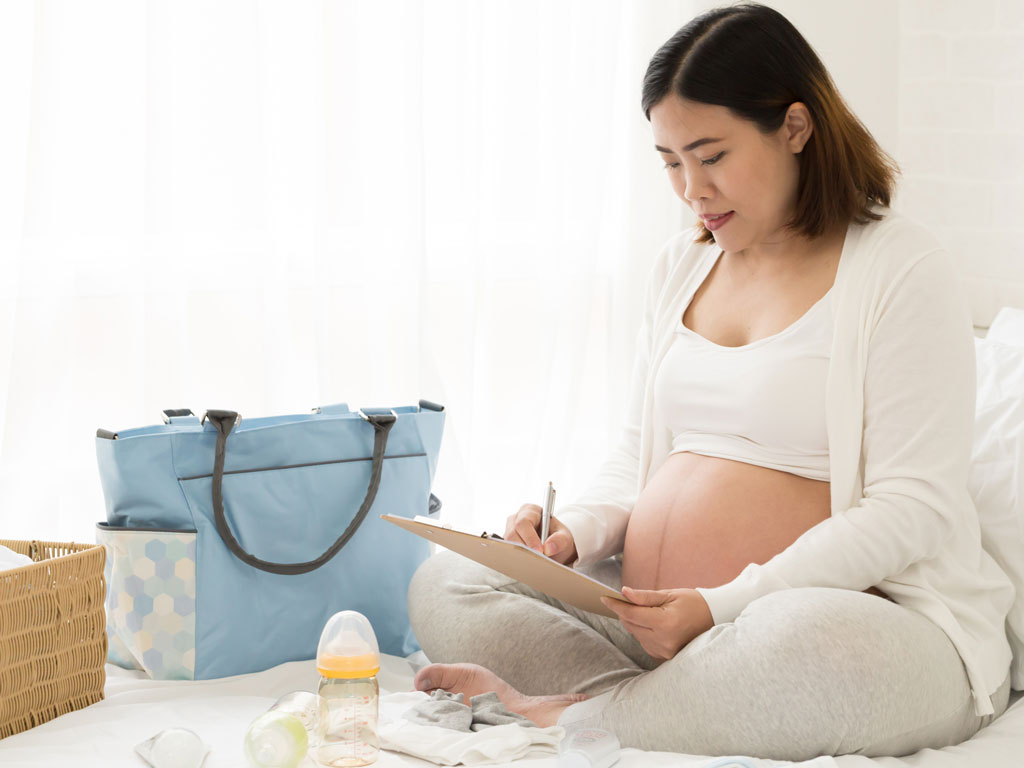by Sarah Lyons
The birth of a baby is one of the most exciting and important life events that a woman will have. Each birth is unique, just as each mother is different. Families will have specific preferences they would like to be part of their big day. Creating a birth plan is a great way to make sure the doctor, parents, extended family, and medical staff are on the same page.
Stacey Cook, a Registered Nurse at Saint Luke’s South Birth and Women’s Center in Overland Park says, “A birth plan helps you feel prepared and gives you a sense of control. It also gives your doctor and nurses a clear picture of your wishes for the birth of your baby.” In order to start your birth plan, ask yourself the following questions and discuss them with your partner:
- Do you want to deliver in a hospital, in a birthing center, or in your home?
- Do you have any medical history that the nurses should be aware of, such as group B strep, Rh incompatibility, gestational diabetes, or drug allergies?
- Do you plan to breastfeed or bottle feed? Would you like to incorporate skin to skin immediately after birth?
- Do you plan to use medication during labor? What other pain management techniques would you like to try? Shower, bath, exercise ball, music, focal points, massage, or different positions? Does the birthing facility offer these options?
- Do you want a delayed cord clamping if possible? Do you want to save the cord blood? Does your partner wish to cut the cord themself?
- Who will be present? Just your partner? Will you have a doula? What about grandparents, friends, aunts and uncles, or older siblings?
- What preferences do you have for infant care? When to feed? Where to sleep? Will you offer a pacifier?
- Will the baby receive standard medications and vaccines?
- If you need a cesarean, do you have any preferences?
Once you have answered these questions, you have most likely determined what you would or would not like to have happen during your birthing experience. Armed with this information, you can start to create your birth plan. Here are some tips:
Discuss with doctor
Talk with your doctor about what a typical birth looks like for her. Your doctor has attended medical school and has likely delivered hundreds of babies so they may be able to give you an idea of how things will go and what you can expect. If your plan differs greatly from the doctor’s plan, discuss this and come up with a plan that works for both of you. Having this discussion in advance can eliminate frustration during the birthing process.

Visit the hospital
Most hospitals offer tours of the birthing facility. These often include spending time in an empty room to get acquainted with the space and help you decide on any other preferences you may want in your birth plan. Ask the hospital staff if pain management items like exercise balls, jacuzzi tubs, or massage are available. Also ask if the baby will stay in a nursery or in the room with you. What will you prefer?

Start early
It can take some time to get your birth plan together, so it is best to start on it early so you can feel confident it is ready when the baby arrives. Even if this is not your first baby, you will still want to have a birth plan in place because you will have new nurses assisting with your delivery. Make sure your plan is easy to read and highlights the most important aspects that you wish for during the birth of your child.
With your plan in place, you will feel more prepared for the big day. “The best tip to remember is that a birth plan is simply that. A plan. It’s important to realize that many things can go differently than you thought and you can change your mind on what you previously wanted. A safe and healthy mom and baby is the ultimate goal for you and your health care providers.” says Cook.
What to pack for the hospital
- Pillow, blanket, other comfort items
- Nursing pillow, nursing pads, nursing bra
- Clothes to wear home (choose some smaller maternity clothes or loose fitting pants)
- Personal hygiene items
- Music, focal point, other pain management items
- Clothes for baby
- Gift for older sibling(s)
- Camera, phone or other personal electronics, and chargers
- Journal or paper and pen in case you want to take notes
- Snacks and vending machine change for your partner





